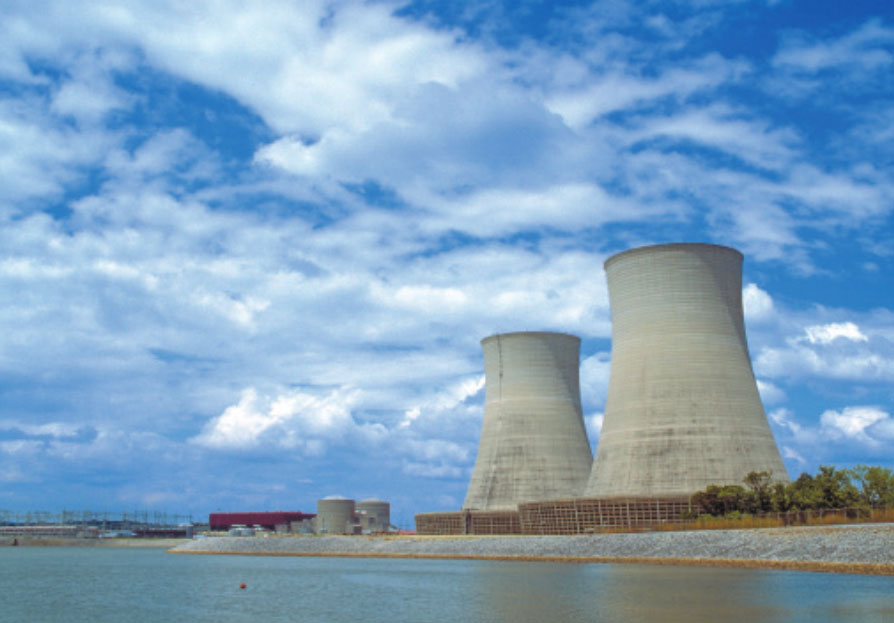Vol. 13 | No. 11 | November 2019
IBEW Supports Nuclear Powers America Act
In an age of shrinking bipartisanship and climbing global temperatures, the Nuclear Powers America Act might just be the bipartisan legislation the country needs to cleanly and reliably power future generations.
”The challenges we face in terms of the climate and the security and reliability of our energy grid go beyond political persuasions because they will impact us all, and the Nuclear Powers America Act is a strong example of finding a common sense solution that works for Democrats, Republicans, environmentalists and everyone else who cares about clean energy production,” said International President Lonnie R. Stephenson.

The Nuclear Powers America Act aims to prevent economically suffering plants from shutting down prematurely, allowing them to continue supplying reliable, clean energy.
The bill, introduced in April, calls for providing existing nuclear power plants with an investment tax credit, modeled after credits for other forms of clean energy like wind, geothermal and fuel cell.
While nuclear supplies 20% of the nation’s electric generation — and 55% of the country’s clean energy — many plants have become economically uncompetitive and are facing early closure. An analysis by the Union of Concerned Scientists found that more than one-third of existing plants — 22% of total nuclear capacity — are unprofitable or scheduled to close.
Renewables like solar are growing rapidly but still account for only 2% of total generation. By contrast, nuclear reactors generate roughly 10 times that amount.
Climate change is receiving more and more attention, groups from all sides of the political spectrum are supporting nuclear power as part of the carbon-free clean energy mix needed to fend off the worst parts of a warming planet.
“The world probably can’t solve climate change without nuclear power,” wrote Eric Holthaus in Grist, an online climate change and sustainability publication.
Nuclear is the most reliable source of electric generation in the country, producing energy 24 hours a day, 365 days a year. It would take more than 800 wind turbines at a cost of $1.3 billion, or 15.8 million solar panels at a cost of more than $6 billion, to replace a single nuclear reactor, according to a Third Way analysis done for Axios.
“Our fleet of commercial nuclear reactors provides a crucial source of carbon-free, baseload electricity,” said Senator Ben Cardin of Maryland, an original co-sponsor along with Sen. Kevin Cramer of North Dakota. “It is imperative that we keep these reactors operating — safely — while we continue to work on demand reduction, renewables, energy storage, and transmission grid resiliency.”
New York, Illinois and Ohio have passed similar legislation to provide zero emissions tax credits to help plants in their respective states.
Many nuclear plants are the economic backbones of their communities, including in rural areas. Each facility employs between 400 and 700 people at wages well above the minimum wage. They also provide funding for community services like schools, infrastructure and law enforcement.
The IBEW is the largest union working in nuclear energy, with nearly 15,000 members working full-time in more than 55 facilities. Thousands more rotate through the plants performing maintenance and refueling support.
Members are encouraged to contact their representative in the House as well as their senators and urge them to support the Nuclear Powers America Act (H.R. 2314 / S. 1134).






